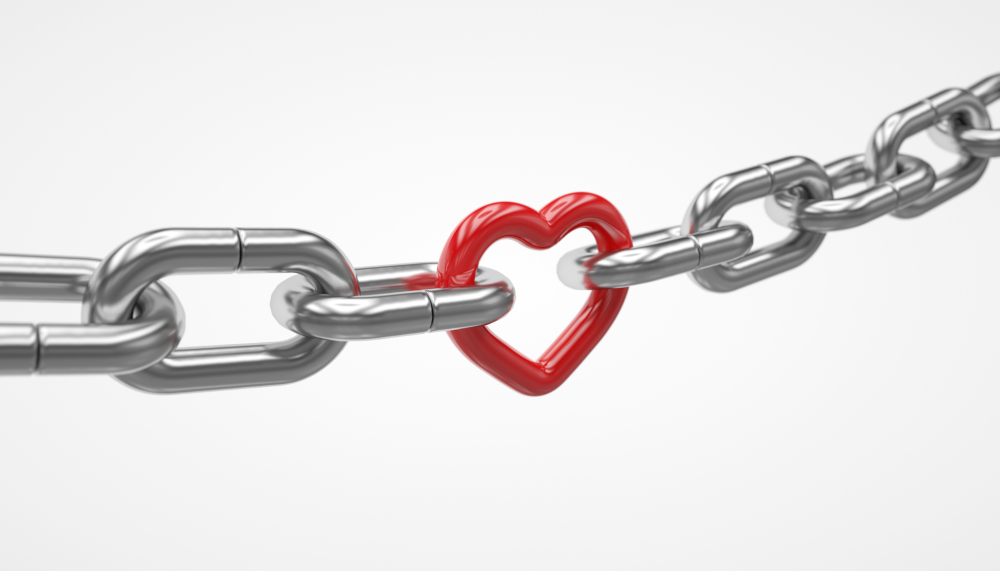Deception is a behavior, but also a way of thinking. So understanding how a cheater may think can help us move beyond the pain of infidelity.
Falling into infidelity is more than a sexual impulse, it is a way of thinking and acting that psychology has explained from different points of view, always focusing on weak relationships. What is the motivation of a cheater? Many factors lead a person to cheat on their partner and break off the engagement, but according to clinical psychologist Joshua Kaplow, there are common elements such as “conflict avoidance, shame, passivity, and aggression.”
We will then explain these factors because we often focus more on the stereotypes of “lovers” as if we could draw them in black and white (without nuances), but we must introduce the thought patterns that accompany the infidelity as a process
Here are the 10 truths that no one has told you about how unfaithful people are and think:
1. They are afraid of conflict
The fact that cheats on his partner resorts to infidelity because he is afraid to fight for something that bothers him Infidelity is the “perfect trap” for overcoming frustrations without having to confront them in a way that could be intense.
“People often cheat out of fear of facing conflict,” says Dr. Klapow. “They know there are problems in their relationship, they may have mentioned it, but they have not investigated it, and not seeing any change in their relationship, they prefer to avoid conflicts. Let’s escape.”
This aspect can help you understand why your partner preferred an “easy way out” but very risky for the stability of the relationship.
2. They don’t know how to face problems
Cheating on your partner with another person can be used as a defense mechanism to avoid real problems: they may be in your own feelings or in the relationship. “They are frustrated in their relationship, they feel that their partner has lost interest in them or is not listening to them, and infidelity is a way of challenging that shame.” Instead of dealing directly with the problem, they avoid it and act deceptively,” says Joshua Kaplow.
Of course, this is not an excuse, but it can give us a clue about the type of people most likely to be unfaithful.
3. They are disappointed
Often, cheaters are not angry with their partner, but rather feel uncontrollable, desperate, or frustrated. According to psychologist Kaplow, “People cheat desperately, and in some cases they have given in but don’t want to end their relationship for various reasons (money, children, lifestyle).”

4. They see infidelity as a last effort
On many occasions (more than we imagine), infidelity is seen as a piece of the puzzle that they need to save their relationship. The person does not want to leave because they feel comfortable with their partner, but there are aspects that they miss and that they do not know how to express. At this point, communication is essential, but we return to point 1: they are afraid of conflict and do not want to put their problems on the table.
5. Sex is only part of the equation
Just as they see infidelity as a way to restore their relationship, they use it to seek sexual satisfaction from the outside
“It can be the type of sex, the style of sex, the frequency of sex or the feeling of sex. This can be to address emotion that is not realized in the relationship. It can be physical and purely physical.”
But it’s rare that this is the only reason. In general, cheaters face more conflict and this is not just because of a lack of sex.
6. Passive-aggressive behavior
Unfaithful people can use infidelity as a weapon to resolve couples’ conflict in a “non-confrontational” but equally hurtful way. If they are not happy with their relationship but do not want to end it, they cheat in the hope (conscious or unconscious) that they will be discovered and then, yes, they justify the breakup.
“Revenge is not the healthiest way to resolve conflict, but some are still doing it,” says Lauren Dummit, LMFT, co-founder and clinical director of Triune Therapy Group.
7. Conflicts with power
For some cheaters, the problem is monogamy as a concept. They are embarrassed by power structures, but still decide to get married or enter into a relationship following conventions.
“Some cheaters resent authority or rules… and cheat on their partner as a way to show that no one will control them,” Dummit says.
For these people, infidelity is a form of rebellion.
8. They underestimate their own actions
When the unbeliever thinks about what he has done, his value diminishes. It is said that betrayal is not that serious and that your partner exaggerates on the subject This thought pattern shows that the infidelity was just a matter of sex or that they were just dating. Then, when his partner confronts him, he will be convinced that he has done something insignificant and will defend himself, minimizing his partner’s feelings.
9. They have low self-esteem or are narcissistic
All cheaters do not have the same thinking pattern: some are narcissistic and others have very low self-esteem.
However, both types of people may feel the need for an extra surge of love. “They need attention and to be placed on a pedestal,” says Dummit, “(…) some people have a constant need (…) for attention as a way of validating themselves because they cannot validate themselves from within, they lack an inherent meaning of self-esteem.”

10. They don’t want to hurt their partner
Sometimes cheaters think that seeking intimacy beyond the boundaries of their relationship might be best for their partner’s sake. They may feel guilty for not being satisfied, and are afraid of hurting the person they love.
“They don’t get what they need in their relationship, they may feel like there is no more love or attachment, but they don’t want to hurt the other person,” says Dr. Klapow. “As absurd as it may seem, the idea of a divorce or a breakup can seem too painful, so they try to satisfy their needs through deception. They can have a person who compliments them, listens to them and appreciates them…”
When they find that, they may feel a kind of balance that they are missing in the relationship they love, but they don’t feel good anymore and they don’t say it either.









